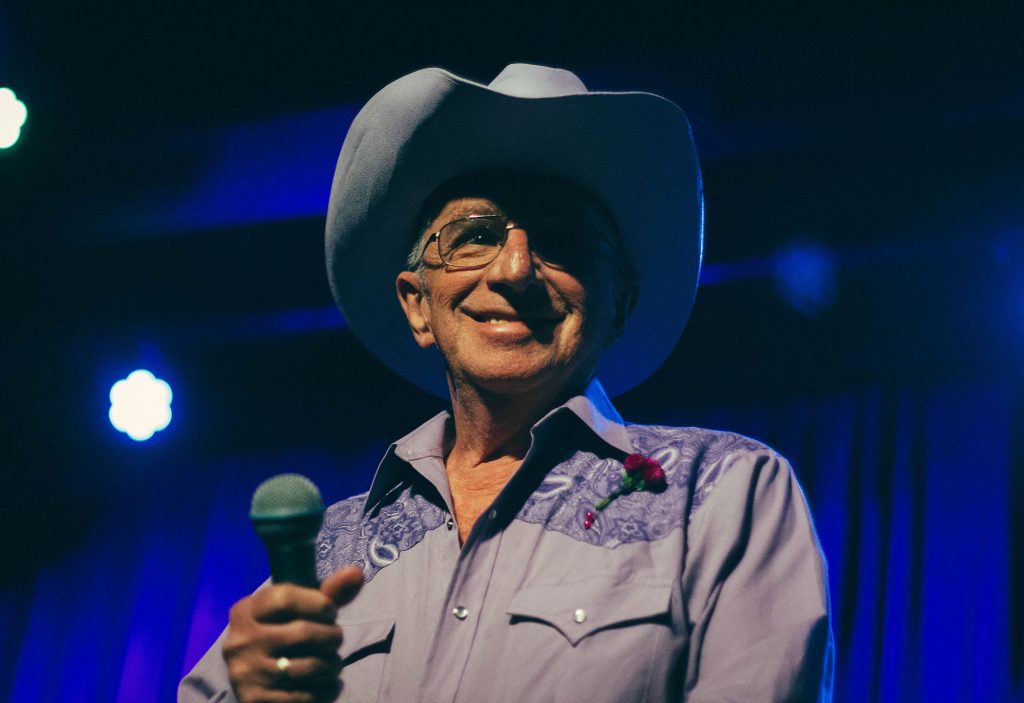The Sweet Second Album from Lavender Country
by Alan Richard
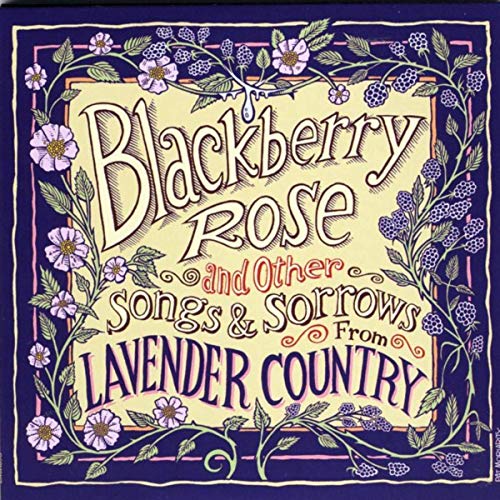
The groundbreaking Lavender Country project returns four decades after the first
In 1973, Seattle-based Patrick Haggerty released what’s often considered the first truly gay country album, the self-titled Lavender Country. Now he’s back with the project’s follow up record, some 46 years later.
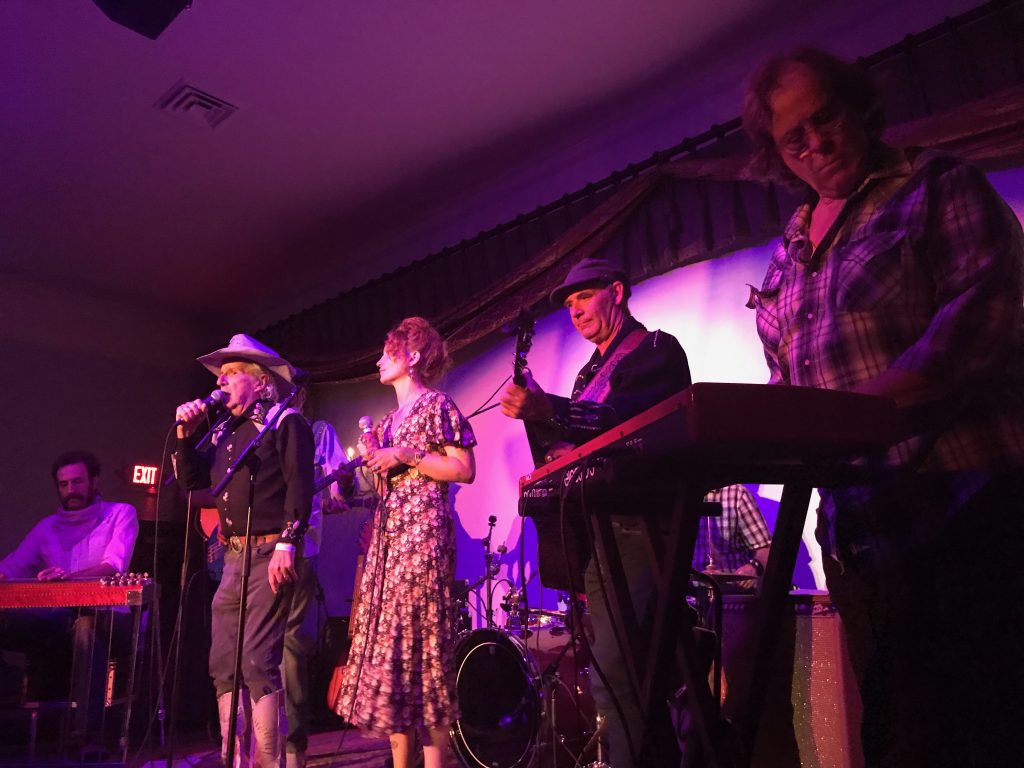
As with the groundbreaking first release, Haggerty’s performances on Blackberry Rose and Other Songs and Sorrows from Lavender Country are full of twang, sometimes funny, often quirky, and not very tight musically (in a Grateful Dead kind of way).
Now 74 years old, Haggerty again respects no limits lyrically or musically. Where else can you hear a honky-tonk number about author and activist Clara Fraser, a socialist and radical feminist who died in 1998? “She loves Karl Marx more than she loves me,” sings Haggerty, showing off his own radical political bent (he’s repeatedly run for office), as the songs narrator proclaims: “She’s a commie, she’s a dyke. Politics just ain’t ladylike.”
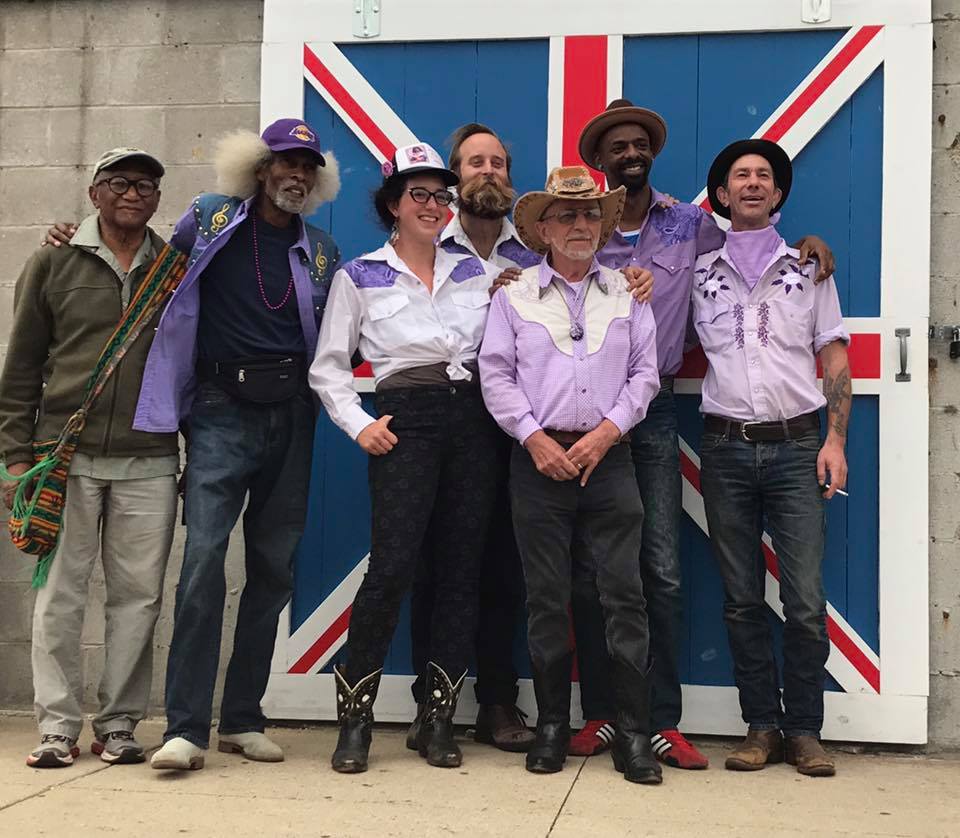
The first Lavender Country album, which begins with the over-the-top “Cryin’ These Cocksucking Tears” (now hated to some extent by Haggerty, according to a recent interview in Pitchfork), reportedly sold only 1,000 copies.
Lavender Country drew new attention in a 1990s article on LGBT artists in country music, leading the CMT television network to cite the record in a documentary on firsts in the genre. Then came a documentary film.
When the small North Carolina-based label Paradise of Bachelors re-released it in 2014 with historical liner notes, Lavender Country became known to many generations more.
On this new record, Haggerty and friends tread into musical territory all across the country music spectrum, and the songs themselves often celebrate a gay culture that once was prevalent and for which some still pine.
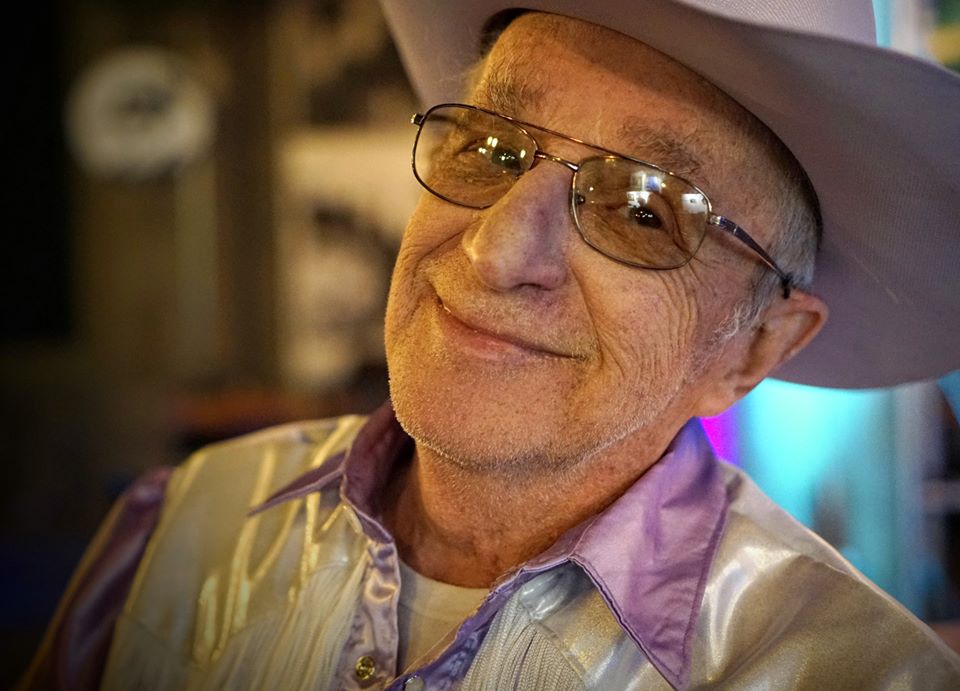
“Gay Bar Blues” is just that–a 12-bar blues, with some nice piano tickling, where we find our cowboy ready to “slither down the street, find the plain gray door” and set about to cruising.
“When’s my sugar daddy gonna set me free?,” Haggerty sings in a nice little refrain. “If he don’t come soon I bet, I’ll die from smoke and cigarettes. … Goin’ home without nobody, I got the gay bar blues.”
On the Cajun-flavored, accordion-laden opener, “Sweet Shadow Man,” he sings of a man with “nappy hair” who set his loins on fire. (Haggerty himself is white and his longtime husband is black. While this long’s lyrics are problematic to the modern ear – Haggerty asserts that the song is intentionally sung with a narrator from 1964 and is a historical look at gay interracial dating. Somehow set against the array of oddities here, it somehow fits right in.)
The best track on Blackberry Rose may be the more “straight”-up country waltz, “All Disillusions Behind,” which will resonate for LGBTQ and straight listeners alike, with a little extra melancholy for those of who lean pink.

As fiddle, guitar and a little mandolin carry the tune, Haggerty jokes that his lover should check out his bed pillows (“they are damned-fine fluffed armadillo”) before the more wistful chorus: “We can spend years, dear, in yesterday’s tears, but if good lovin’ is what’s on your mind, you’ve got to leave all confusions and all disillusions behind.”
The stirring but disturbing title cut “Blackberry Rose,” is built on banjo and explores an interracial love affair in the Carolina sea islands that ends with a black man’s lynching and his white lover’s baby killed by her father with a kick to the stomach.
On a lighter note, Haggerty’s take on the Tammy Wynette classic, “Stand by Your Man,” turns the song into a feminist (and rather hilarious) romp. Nikki Grossman sings lead, backed by some fine fiddlin’.
“Tell him he’s got to change the diapers, tell him he’s got to clean the can, tell him to do the mopping, while you go out bar hopping, or else the shit will hit the fan,” she sings, before hitting the chorus: “Stand on your man, make him get on his knees and make him say pretty please and how he plans to worship your foot ware. … If he don’t put out in bed, hit him upside the head.”
There is an unusual beauty here, and Haggerty’s voice was and is a unique and acquired taste. In all, the second Lavender Country album by Haggerty is a more interesting listen than his first.
Mostly, this is another opportunity to listen with open ears and mind, and reflect on gay life and how it’s changing–and how good country music can evolve and be more inclusive, even daring, to boot.
Blackberry Rose is currently available online (click here) and at Lavender Country live shows all over North America.
